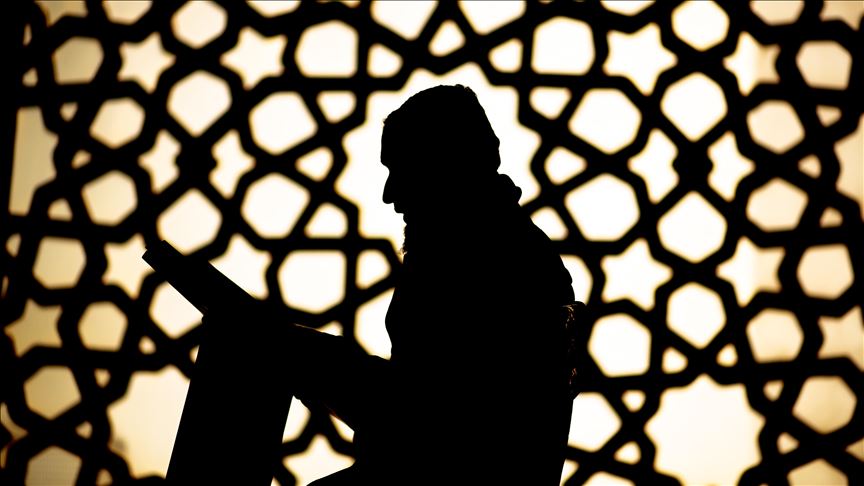Ramadan arrives sans enthusiasm in Gaza
For people in Gaza, Ramadan also brings memories of 2014 Israeli bombings, killing hundreds of civilians
 An imam reads the holy Quran at Al-Halidi Mosque as mosques and masjids are being closed due to coronavirus (COVID-19) pandemic during the Muslims' holy fasting month of Ramadan in Gaza City, Gaza on April 28, 2020. ( Ali Jadallah - Anadolu Agency )
An imam reads the holy Quran at Al-Halidi Mosque as mosques and masjids are being closed due to coronavirus (COVID-19) pandemic during the Muslims' holy fasting month of Ramadan in Gaza City, Gaza on April 28, 2020. ( Ali Jadallah - Anadolu Agency )
GAZA CITY, Palestine
Like the rest of the world, the month of Ramadan lacks festivity in the Palestinian territory of Gaza in the wake of quarantine and self-isolation to mitigate the spread of the coronavirus pandemic.
But for many residents, the lockdown is like an extension of the crippling siege imposed by Israel since 2007.
In this coastal territory, many draw parallel between their staying inside their homes for 52 days at a stretch in 2014 to save themselves from Israeli bombings and now holding inside to keep the pandemic away.
Residents are still to negotiate with an unfamiliar Ramadan, which is usually associated with social bonding, lavish Iftar parties, conjuring with the image of mouth-watering dishes, and aroma of lip-smacking cuisines specially prepared to break the fast.
Feeling a different Ramadan this year, 25-year-old Ahmed Elqattawi said the events happening across the globe were affecting everyone psychologically.
“My preparation for Ramadan remains the same but it lacks excitement and mental readiness,” he said.
He added that all other engagements like performing late-night Taraweeh prayers at the mosque and visiting relatives have been abandoned due to health precautions.
It is not only a cut in festivity, but the pandemic has affected Elqattawi’s income also, as his job depends on contracts and fieldwork.
Ramadan brings back 2014 memories
The holy month also brings back memories when Israel launched Operation Protective Edge in 2014, killing hundreds of civilians in the region.

Mohammed Abu Oun, 31, lost his uncle in the aggression. Since then, Ramadan has been linked to the tragic incident he harbors in his mind.
“I still remember it crystal clear, that was the saddest morning ever,” said Abu Oun.
He received the news when he was accompanying his sister to a hospital in Nuseirat City after a rocket hit her house.
He says that the energy is different this year during Ramadan. But his wife Asmaa has arranged crescent-shaped balloons and lanterns to lit the house to give kids a feeling of the holy month.
“Part of the rituals is indeed missing but I want my kids to feel some joy at least,“ he said.
Being a family man that he is, Abu Oun would usually take his wife and two kids to shop to prepare for the holy month. This year, while shopping alone, he skipped many items, hoping that lockdown would end soon and he would be able to enjoy fete of Ramadan.
Empty market
At Al-Zawiya market, one of the oldest in the Gaza City and destination for Ramadan shopping, Om Ahmed, a 62-year-old lady, who sells pickles, is awaiting customers.
“We receive a huge number of visitors every year especially two weeks before the beginning of the holy month. This year, buyers are scarce and I have barely made any money," she added.
The sole breadwinner for her family, Ramadan used to come a boon for her to sell pickles -- an important ingredient of Iftar for Palestinians -- to earn a livelihood and save money to spend on her family rest of year.
“I am afraid. I have nothing this year as the mosques and charitable organizations are closed,” she added.


